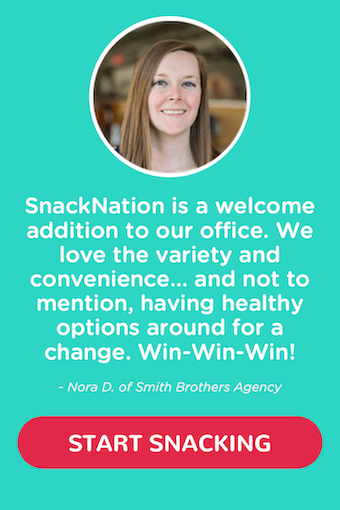Can I tell you a secret?
The movers and shakers of the world are distinguished by one thing and one thing only – their mindset. And not just any type of mindset…the entrepreneurial mindset.
People with entrepreneur mindsets have a unique set of thoughts and behavioral patterns that enable them to achieve dreams and ambitions.
The good news is – the entrepreneurial mindset is easily achieved. You don’t need to go to Harvard, be listed in Forbes 30Under30, or hobnob with Steve Jobs to get it. We’ll show you how to have entrepreneurial success in this article.
Page Contents (Click To Jump)
What Does It Mean To Have An Entrepreneurial Mindset?

The word “mindset” refers to a habitual or characteristic mental attitude that determines how you interpret and respond to situations. A person with a positive mindset sees challenges as opportunities and learning experiences. They invariably have a positive attitude toward people and situations. On the other hand, a person with a negative mindset is likely to see the worst in all situations.
The entrepreneurial mindset is a unique set of thoughts and beliefs that drive a person to function as a risk-taking and action-oriented business person. But you don’t need to be an aspiring business owner to have an entrepreneurial mindset.
Having an entrepreneurial mindset can serve you well in whatever job you do. Yes! Even as a full-time salaried employee.
Here’s why.
The Importance Of Having An Entrepreneurial Mindset

Experts agree that entrepreneurs are distinguished by unique characteristics. While the list can be long and varied, depending on the individual, here are some of the top features shared by the most successful entrepreneurs in the world:
- They’re willing to take risks because they believe in what they’re doing.
- They think outside the box.
- They’re built to last even when the odds are stacked against them.
- They can change their approach depending on the situation to achieve their goals.
- They have a vision for themselves and their ultimate goal.
- They understand the importance of building win-win relationships with customers, the backbone of any business.
- They’re never too old to learn a new trick. They openly embrace learning as a means to an end.
- They know how to leverage their resources (however slight) to capture more significant learning opportunities.
- They’re disciplined – they put in the necessary time and hard work consistently, knowing that consistency breeds success.
At this point, you’re probably wondering why this would matter to anyone not considering starting their own business or becoming an aspiring entrepreneur.
You see, the entrepreneurial mindset encourages you to think in a manner that enables you to stand out and achieve things far beyond the scope of the average person in your chosen profession.
Go from being just another employee to thinking like an entrepreneur, and you’ll see your job in a completely new way. This means you’ll start contributing like a partner, and that’s bound to get you noticed and positioned for much bigger things.
9 Traits Of An Entrepreneurial Mindset

Want to set yourself apart from the rest of the crowd and carve a successful path for yourself? You don’t need to go to business school to do that. Some of the best entrepreneurs in the world have yet to go to B-school.
The key is understanding the most important traits you must acquire to build an entrepreneurial spirit. We’ll be covering each trait one by one next – what they are and how you can start to integrate them into your thought processes from today. Remember to be consistent – work on adopting one or two traits until they become a habit and then do the same for the rest.
1. Risk-taking propensity 🤩
Entrepreneurs often encounter situations where the outcome of a decision is unpredictable. Yet, embracing risk-taking is fundamental to successfully navigating an ever-changing business environment.
Risk-taking encourages innovation and creativity. It involves exploring uncharted territory, coming up with fresh perspectives to solve unique challenges, and intelligently disrupting the conventional ways of doing things. It also helps build resilience or the ability to get back on your feet despite punishing setbacks.
Risk-taking can give you a huge competitive advantage compared to other businesses that prefer sticking to the tried-and-tested route. You may discover new opportunities they may have overlooked and find new avenues to increase your market share and even dominate the market.
🔥 Pro-Tip from FounderIV: Start with small calculated risks before incrementally increasing the level of risk to overcome self-doubt gradually. Weigh the pros and cons and evaluate the risk against the potential benefits. Feel the fear and do it anyway!
2. Innovative thinking 🤓
“The riskiest thing we can do is just maintain the status quo.“ – Bob Iger, CEO of the Walt Disney Company Share on XInnovation is vital for building long-term sustainability, especially if you’re a startup or small business keen to grow. People who embrace innovative thinking are more likely to adapt to shifts in market trends, embrace emerging technology, and pivot products/services to keep up with customer preferences, virtually guaranteeing longevity for their businesses.
Innovative thinking is the ability to generate novel and out-of-the-box solutions to solve problems, meet market/customer demands, and develop a uniquely valuable product. Unlike conventional problem-solving or critical thinking, innovative thinking helps one explore unconventional solutions, challenge existing norms, and continuously drive change for improvements and industry leadership.
🔥 Pro-Tip from FounderIV: Building an entrepreneurial mindset doesn’t have to be this big amorphous concept to execute. You can always start small and work your way up. Success comes from showing up every day and doing the work.
3. Resilience 💪

Resilience is the ability to withstand setbacks, adapt to adversity, and recover from challenges with renewed strength and determination. It goes beyond endurance to encompass a mindset that sees failures and obstacles as opportunities for growth rather than insurmountable barriers.
Resilience is a crucial trait for entrepreneurs to embody because of the inherent uncertainties and risks associated with starting and running a business. You have to remain steadfast in the face of a long list of sometimes unforeseen challenges such as market fluctuations, financial challenges, and other unexpected setbacks. Hence, it’s a necessary adaptation skill.
Resilience is also required to help entrepreneurs cope with the inevitable stress and pressure of managing the hustle day in and out. It helps you stay focused, make sound decisions, and maintain a positive mindset regardless.
🔥 Pro-Tip from FounderIV: Adopt proactive stress management practices to enhance your overall resilience. Exercise regularly, practice mindfulness, and ensure you get adequate sleep to optimize your emotional and mental well-being. Additionally, establish clear boundaries between work and personal life to prevent burnout.
4. Adaptability 🤹
Adaptability is a must-have quality for entrepreneurs due to the inherent changeability of the market dynamics, technology, and customer preferences. It’s the ability to adjust, evolve, and not just survive, but thrive. Adaptable entrepreneurs are better positioned to stay ahead of the curve, identify emerging trends, and capitalize on opportunities. In a rapidly changing world, the ability to pivot, adjust strategies, and learn quickly from experiences is a key differentiator between thriving ventures and those that struggle to keep up.
🔥 Pro-Tip from FounderIV: Adopt a flexible attitude towards decision-making to build your ability to adapt. Avoid rigidly adhering to your plans, and be open to adjusting strategies based on new information. Regularly assess the effectiveness of your strategies and be willing to change as needed if the market or the customer demands it.
5. Visionary mindset 🔮
A visionary mindset is the ability to conceive a compelling and inspiring vision for the future of your business and articulate it effectively to others. A visionary entrepreneur possesses the foresight to set ambitious long-term goals, envision the broader impact of their endeavors, and inspire a shared sense of purpose among their team.
In practice, this involves going well beyond immediate challenges to anticipate upcoming trends and spearhead innovative solutions that could potentially be a game changer for the industry.
🔥 Pro-Tip from FounderIV: Actively seek to understand emerging trends and technologies within your industry and outside influences that can have an impact. Dedicate time to reading industry reports, attending conferences, and participating in discussions with thought leaders.
6. Customer-centric approach 🤝

A customer-centric approach requires you to prioritize the needs, preferences, and overall satisfaction of your customers at all touchpoints. It involves aligning your core business strategies, products, and services to the needs of the customer, aiming to provide exceptional value and experience that they can’t get elsewhere.
Customer-centricity enhances brand reputation. Satisfied customers become brand advocates, contributing to positive word-of-mouth marketing and attracting new customers.
Actively seeking and valuing customer feedback leads to insights that drive improvements and innovations. This constant feedback loop ensures that products and services evolve in tandem with changing customer needs and market trends.
Last but not least, a customer-centric attitude is a strategic advantage. Entrepreneurs who prioritize customer satisfaction gain a distinct edge over others in the same industry. They’re simply better equipped to adapt to evolving market conditions, build a loyal customer base, and sustain a successful business for the long term.
🔥 Pro-Tip from FounderIV: Implement robust systems for collecting and analyzing customer feedback. Utilize surveys, reviews, and social media platforms to regularly gather insights about customer experiences, preferences, and pain points. Use these insights to make informed decisions for product/service development and enhancements.
7. Continuous learning 📚
Continuous learning involves a proactive commitment to acquiring new knowledge, skills, and insights to stay relevant, adapt to changing business landscapes, and boost personal and professional growth. It isn’t necessarily confined to formal education but can extend to other non-traditional learning channels such as workshops like PL-300 Exam Dumps, conferences, networking, and self-directed exploration.
Continuous learning enables you to remain agile and well-informed, helping you to make strategic decisions, identify new opportunities, and navigate challenges effectively.
🔥 Pro-Tip from FounderIV: Sign up for entrepreneurship newsletters, listen to podcasts, or follow the social media accounts of people known so you can stay in the know on the types of entrepreneurial skills and knowledge that are current and trending.
8. Resourcefulness 🔭
A resourceful entrepreneur can leverage and maximize the potential of existing resources through innovative solutions to overcome challenges and achieve goals. It’s a critical quality for entrepreneurs to have, again due to the inherent volatility of the business landscape.
Startups often face resource constraints, whether in terms of finances, manpower, or technology. Resourceful entrepreneurs can make the most out of limited assets, optimizing efficiency and sustainability. They excel at finding unconventional solutions and capitalizing on existing strengths, allowing them to weather uncertainties and capitalize on opportunities.
Resourcefulness is not only a necessary life skill but also a cornerstone for successful entrepreneurship.
🔥 Pro-Tip from FounderIV: Read up on case studies of real-world businesses and how they successfully navigated challenges with limited resourcing. Use these insights to create a knowledge bank of creative business ideas to spur unique solutions for your businesses.
9. Self-discipline ✅

Self-discipline for an entrepreneur is the ability to control reckless impulses, stay focused on long-term goals, and consistently adhere to established routines and work schedules – despite having to outmaneuver multiple distractions and curveballs.
Entrepreneurs with self-discipline can adhere to deadlines, manage time effectively, and stay on course despite external pressures. Self-discipline enables entrepreneurs to maintain a structured approach to their work, leading to increased efficiency and sustained momentum. It’s also a critical component to building a strong work ethic and the mental fortitude required to build a successful business.
🔥 Pro-Tip from FounderIV: Share your goals and progress with a mentor, advisor, or fellow entrepreneur who can provide guidance and hold you accountable. Regular check-ins or progress reports create a sense of responsibility, fostering discipline in meeting commitments.
How To Develop An Entrepreneurial Mindset
Having the right mindset can be hugely rewarding as you start to see the changes in yourself and the impact you’re making in the world around you. Think of developing an entrepreneurial mindset as a long-term game where the results get compounded as your skills get better with repeated practice and use.
Build entrepreneurial thinking by starting with small opportunities. For example, if you’re planning to launch a new business in e-commerce or looking to scale up, come up with a limited edition product based on customer feedback and analyze its performance post-launch. What did you do well? What could have been done better? Collect feedback once again to see how you can make your product even better. Rinse and repeat.
🔥 Pro-Tip from FounderIV: Encourage an entrepreneurial mindset at your workplace. Go beyond simply disseminating motivational quotes, posting positive affirmations on the wall, and hoping for the best. Actively promote a “fail fast, learn faster” attitude. Block a weekly time slot to sit down with your team members and discuss failures, setbacks, and lessons learned. Also, discuss challenges and encourage problem-solving to find win-win solutions as a team.
People Also Ask These Questions About Entrepreneurial Mindset
Q: In what ways can I foster and maintain an innovative thinking mindset on a day-to-day basis, especially when faced with routine tasks or challenges?
- A: Having to do routine tasks over and over again can get tedious fast. Instead, maintain innovative thinking daily by following these steps:
- Set aside time for exploring the latest industry and market trends and learning new skills.
- Create a work culture that embraces and rewards creative problem-solving. Carry out regular brainstorming sessions in teams to encourage diverse perspectives. Challenge assumptions and reframe questions so you’re, as a team, approaching problems from different angles.
Q: What are some practical strategies for building resilience, and how can I learn from failures to propel my entrepreneurial journey forward?
- A: Entrepreneurship can be a uniquely challenging (but just as rewarding!) journey. Hence the need for resilience to help you bounce back and continue to push forward to achieve your goals. Cultivate a strong support network comprising mentors, advisors, and fellow entrepreneurs for guidance and encouragement during challenging times.
Prioritize mental well-being through stress-management practices such as mindfulness or regular exercise. Review failures and setbacks to identify areas for improvement. Embrace a growth mindset that sees challenges as new opportunities for development.
Q: Can you provide examples of successful entrepreneurs and how they demonstrated adaptability in the face of changing market conditions?
- A: Sure! Jeff Bezos, the founder of Amazon, is possibly one of the most well-known examples of the ability to successfully navigate and even dominate a niche in the face of changing market changes.
From an online bookstore, Amazon has grown into an e-commerce giant innovating many of the growth marketing methods that have since been adopted by other online marketplaces. The business is growing from strength to strength with its forays into cloud computing and entertainment streaming services.
Then there’s Elon Musk who successfully transitioned from co-founding PayPal (and selling it for profit) to leading Tesla, where he spearheaded innovative electric vehicles and renewable energy solutions in response to market trends. Additionally, with SpaceX, Musk disrupted the space industry with the twin goals of reducing space travel costs and potentially colonizing Mars. His ability to pivot between industries showcases a remarkable ability to intuit upcoming trends and re-engineer his product portfolio accordingly.
Q: How can I refine my long-term vision for a venture and effectively communicate it to stakeholders, including potential team members and investors?
- A: Refining your long-term vision for a venture and effectively communicating it to stakeholders demands a strategic and transparent approach. Start with reassessing your business objectives in light of market trends and customer needs. Develop a mission statement that encapsulates the need for the refinement and the benefits you foresee as a result of this change backed up with the necessary facts and figures.
When communicating with stakeholders emphasize market opportunities, scalability, and strategic steps toward long-term success. Lay out opportunities and potential risks, showcasing your commitment to risk mitigation and adaptability.
Q: What specific steps can I take to enhance my customer-centric approach and ensure that the products or services I offer truly meet the needs of my target audience?
- A: Start with comprehensive market research to understand your customer persona and identify preferences, challenges, and pain points. Create a feedback loop through the use of surveys and reviews which will help you refine your products and services based on evolving expectations.
Train your staff to prioritize customer satisfaction. Ensure a seamless user experience and adopt social listening tools to track real-world customer sentiment on social media channels (LinkedIn, Facebook, Twitter, etc.). Lastly, use data and metrics to identify trends at all points of the customer journey.









